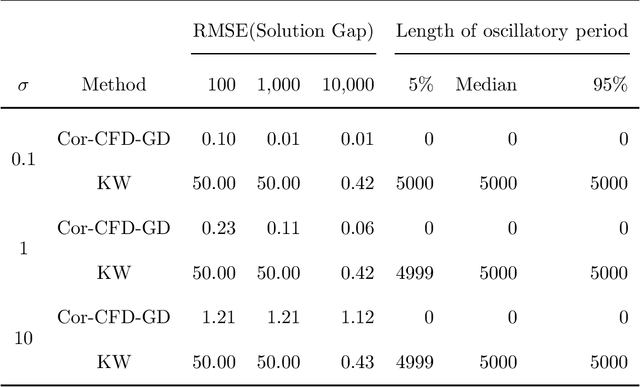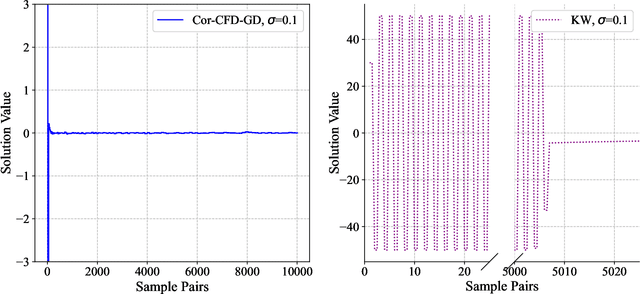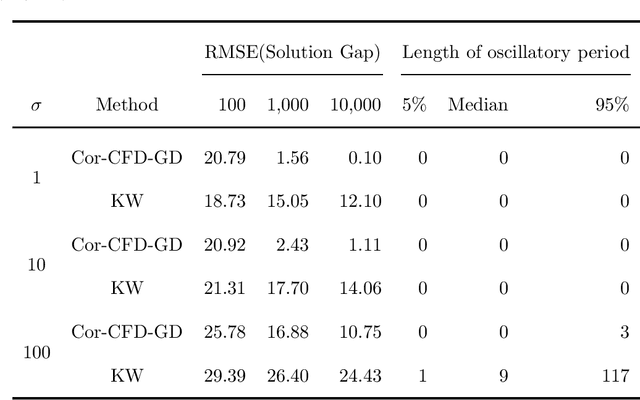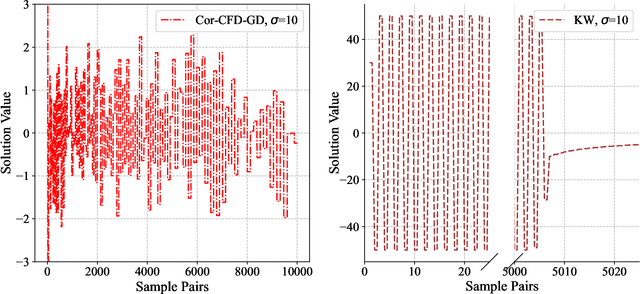Zhang Kun
Derivative-Free Optimization via Finite Difference Approximation: An Experimental Study
Oct 31, 2024



Abstract:Derivative-free optimization (DFO) is vital in solving complex optimization problems where only noisy function evaluations are available through an oracle. Within this domain, DFO via finite difference (FD) approximation has emerged as a powerful method. Two classical approaches are the Kiefer-Wolfowitz (KW) and simultaneous perturbation stochastic approximation (SPSA) algorithms, which estimate gradients using just two samples in each iteration to conserve samples. However, this approach yields imprecise gradient estimators, necessitating diminishing step sizes to ensure convergence, often resulting in slow optimization progress. In contrast, FD estimators constructed from batch samples approximate gradients more accurately. While gradient descent algorithms using batch-based FD estimators achieve more precise results in each iteration, they require more samples and permit fewer iterations. This raises a fundamental question: which approach is more effective -- KW-style methods or DFO with batch-based FD estimators? This paper conducts a comprehensive experimental comparison among these approaches, examining the fundamental trade-off between gradient estimation accuracy and iteration steps. Through extensive experiments in both low-dimensional and high-dimensional settings, we demonstrate a surprising finding: when an efficient batch-based FD estimator is applied, its corresponding gradient descent algorithm generally shows better performance compared to classical KW and SPSA algorithms in our tested scenarios.
An Upper Confidence Bound Approach to Estimating the Maximum Mean
Aug 08, 2024Abstract:Estimating the maximum mean finds a variety of applications in practice. In this paper, we study estimation of the maximum mean using an upper confidence bound (UCB) approach where the sampling budget is adaptively allocated to one of the systems. We study in depth the existing grand average (GA) estimator, and propose a new largest-size average (LSA) estimator. Specifically, we establish statistical guarantees, including strong consistency, asymptotic mean squared errors, and central limit theorems (CLTs) for both estimators, which are new to the literature. We show that LSA is preferable over GA, as the bias of the former decays at a rate much faster than that of the latter when sample size increases. By using the CLTs, we further construct asymptotically valid confidence intervals for the maximum mean, and propose a single hypothesis test for a multiple comparison problem with application to clinical trials. Statistical efficiency of the resulting point and interval estimates and the proposed single hypothesis test is demonstrated via numerical examples.
 Add to Chrome
Add to Chrome Add to Firefox
Add to Firefox Add to Edge
Add to Edge